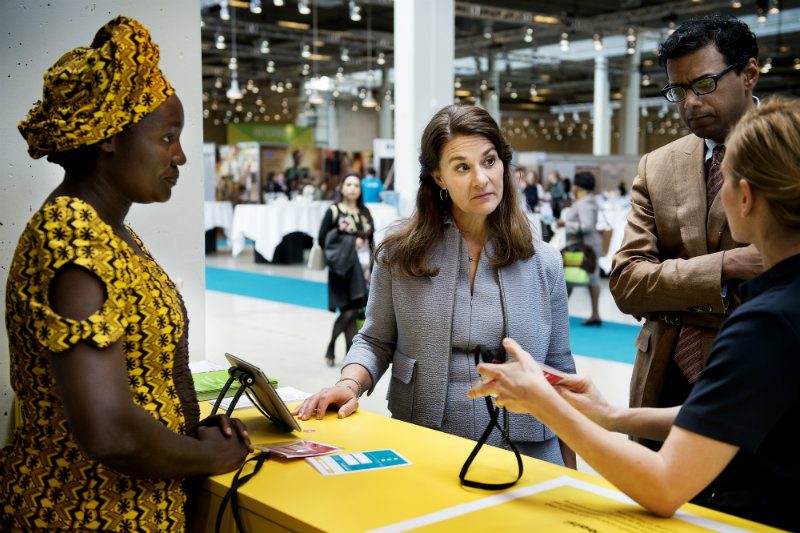SUMMARY
This is AI generated summarization, which may have errors. For context, always refer to the full article.

COPENHAGEN, Denmark – Philanthropist and women’s health rights advocate Melinda Gates on Tuesday, May 17, committed $80 million to “close the gender gap” by funding research and reliable data collection that will identify the economic and social issues affecting women.
“It’s great that women and girls are at the heart of the Sustainable Development Goals (SDGs). But right now there is insufficient data to build a baseline for nearly 80% of SDG 5 indicators,” said Gates, who is co-chair of the Bill & Melinda Gates Foundation.
She said the funding would improve methodologies for data collection, and allow the collection of data in areas such as time use, unpaid work, and economic empowerment.
The SDGs, which were launched last January, include gender equality and the empowerment of all women and girls by 2030.
“We cannot close the gender gap if we do not close the data gap. If advocacy for women and girls is about giving voice to the voiceless – gathering and analyzing data is about making the invisible visible,” said Gates.
The funding will be given over a 3-year period and will be used to equip decision makers with better evidence to support development goals, including SDG 5 on gender equality.
Advocates welcomed Gates’s announcement as a way of providing a more detailed picture of the challenges that women and girls face.
Studies show that as many as 50% of girls in poor countries miss at least one day of school a month because of their period. In some of these countries, taboos on menstruation and lack of money to buy sanitary pads force girls to stay home while menstruating. Many girls eventually drop out.
“We don’t have reliable broadscale data on how many girls drop out of school because of their menstrual period. We do have a lot of anecdotal information,” said Carolynne Wheeler, news manager for aid group WaterAid UK.
Gates emphasized that adding data alone will not change women’s lives. “We will put that data to use. Because better data will help in formulating better policy, programming, and accountability.”
The announcement was made at Women Deliver 2016, the largest gathering of health experts and advocates working to advance the reproductive health rights of women and girls. Women Deliver 2016 runs from May 16 to 19 in Copenhagen, Denmark. – Rappler.com
Add a comment
How does this make you feel?
There are no comments yet. Add your comment to start the conversation.